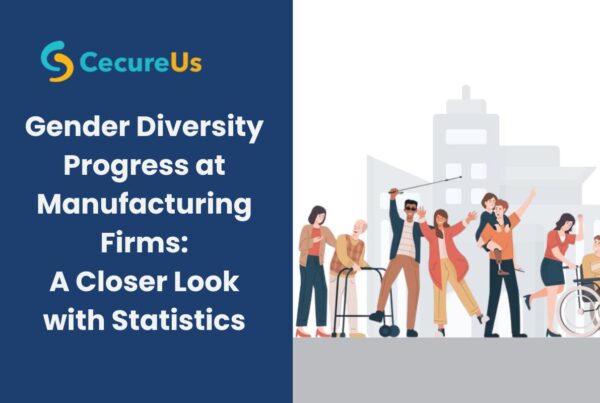When the term Diversity, Equity, Inclusion and Belonging (DEIB) in the workplace is mentioned, almost everyone agrees that this topic is the need of the hour. However, when implementing inclusive diversity in the workplace, organizations or a few key people may shy away from it in reality. This is because DEIB is still perceived as cumbersome, expensive, and not very beneficial. Although this viewpoint is changing, there is a long way to go. Inclusive diversity in the workplace is the key to innovation and progress, and most importantly, it brings equity and belonging among employees of the organization.
Here are four solid advantages of taking diversity, inclusion, equity and belonging more seriously and implementing them in the workplace.
Different Perspectives
Diversity brings people from different backgrounds together towards a common goal, and inclusiveness drives them to handle the challenges on the path as a team. Therefore, several approaches emerge to solve an issue. If one does not work, there is always another suggestion to try out. An environment of equity and belonging is open enough to invite, explore and analyse new ways of problem-solving in the workplace.
In a workplace that fosters culturally (or otherwise) homogenous teams, the thought processes are likely to be more similar, giving less scope for multiple ways of problem-solving. A diverse group that focuses on equity, inclusiveness and belonging also has the potential to churn out resilient deliverables since the end result will include inputs based on varied factors that might not have come up if the concept of Diversity, Equity, Inclusion and Belonging was not applied.
Higher Employee Retention
When the principles of diversity, equity, inclusion and belonging are applied to build and sustain a team, every member will feel cherished; their uniqueness is celebrated, and they add a different flavour to their work and workplace.
Employees who feel respected and comfortable being themselves at their workplace will have the confidence and the opportunity to present their ideas and showcase their talent without feeling that they are unfairly treated due to their background and are less likely to leave the organization. Thus, the attrition rate can be lowered in the workplace by increasing diversity, being more inclusive, ensuring equity, and creating the mental space for each individual to authentically express themselves to have a sense of belonging.
Inclusive diversity encourages employees to stay in the organization for longer and helps employees understand its dynamics better, and improves the quality of their contribution to their work, enhancing the outcome. This reduces the cost of training new employees and incentivizes existing ones through financial means to ensure retention and commitment to the organization’s growth.
Better For Business
Applying Diversity, Equity, Inclusion and Belonging to the workplace is one way of improving the performance of an enterprise. There is a rationale behind this ? as the number of perspectives and approaches increases, there are more avenues for the business to explore and more strategies to adopt. Risks that may have been in the dark if not for Diversity, Equity, Inclusion and Belonging may come to light, and new mitigation methods may also come up.
When inclusive diversity is implemented in the workplace, innovation and creativity also increase. More efficient methods of doing the same activities may emerge. All this makes the business better poised for growth and increase in revenue or profitability.
Opportunity To Recruit More Talented Candidates
Once an employer removes the confinements around the cultural, religious, linguistic, ethnic, or national background of a potential employee by applying the principles of inclusive diversity, there is an increase in viable candidates for a particular role. By showing an open-minded approach to inclusive diversity, an organization has more access to suitably qualified and experienced personnel.
Such an increase in the talent pool will give the recruiter two advantages:
- They have the opportunity of finding a better fit for a role
- More options give rise to more negotiating power in terms of remuneration.
After recruitment, a brief conversation or session on Diversity, Equity, Inclusion and Belonging can be facilitated by HR in the workplace to build friendly and trustworthy bridges between the new recruits and the existing employees. The individual strengths, potential areas for contribution, and new ideas for improving the business process or functions can be discussed. This will create a sense of belonging while increasing the acceptance of existing employees.
Managers and HR in the workplace must take special care to ensure that individual biases do not affect the recruitment process.
For example, a boss looking for a new subordinate might prefer candidates from their hometown or region. In such cases, an organization’s stance on Diversity, Equity, Inclusion and Belonging must prevail over and above such preferences.
To Sum Up
Diversity, Equity, Inclusion and Belonging are not mere buzzwords. A company that adopts and practices the principles of DEIB can enjoy several advantages over a company that does not. Updating the HR policies to embrace DEIB can prove beneficial in the above-explained ways.
To know more about our Prevention of Sexual Harassment (PoSH), Diversity, Equity and Inclusion (D,E&I) and Employee Assistance Programs (EAP) solutions do write to us at connect@cecureus.com or call us at +91-7200500221




